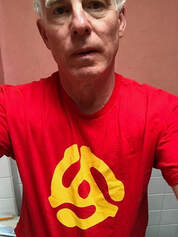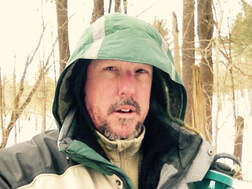Headline PoetryHeadline Poetry is a sister project of Line Rider Press, and includes current event inspired poetry and other radical artistic commentary. The sections of this newspaper style e-publication include:
Check them out! My Coney Island by Susan E. OringelReviewed by Charles Rammelkamp “My Coney Island” Poetry Finishing Line Press, 2019 $14.99, 42 pages ISBN: 978-1-63354-946-7 Dedicated to the memory of her parents, Robert and Beverly Oringel, Susan Oringel’s My Coney Island re-creates a vital part of the poet’s past growing up in a loving Jewish family in post-war Brooklyn. As she writes in the final poem of the collection, “My Coney Island”: “In dreams the only sound I hear is the surf’s roar, creation’s bray, white-fingered, looming waves grabbing me back to the avenues, Surf, Neptune, Mermaid, land where my parents played and I began, begin again. This poem is like the back cover of a book that contains her memories, the front cover – the initial poem – one called “Song of Coney Island,” in which she speaks fondly of returning to that long-ago Coney Island “where my / grandpa still fishes on the pier and Grandma grinds carp / for gefilte fish.” The poems between the covers, all tinged, inevitably, with a kind of nostalgia, include glimpses of her mom and dad as healthy, vital people (“Not Just Any Fool,” “My Father’s War,” “My Father’s Workshop” focusing on her father; “La Vie en Gris,” “Chopped Chicken Livers” and “Mother Love” on her mother). They also how them as they are dying, felled by cancer and a brain tumor (“Pink Balloon,” “How the Body,” “House,” “Struck,” “Last Days,” “The Last Lunch”). Inevitably there are reflections on the fleeting nature of existence. “Playing on the Beach” is a poem about the painter Robert Marsh’s depictions of Coney Island, “a sea of people escaping Depression’s end, the war, / and city heat.” Marsh’s paintings of Coney Island and Greenwich Village “displayed flesh and pleasure, like the Parisian dancers and prostitutes / painted by Degas and Toulouse-Lautrec.” They capture glimpses of innocence, before we are “tethered.” But aren’t we all tethered? First to our own bodies, then to others, to life, and finally to death, as the more vaguely painted, surrounding bodies suggest, muscled but fading from the scene. The other beach-goers, the museum notes, with their “muscular and frieze-like postures suggest the bacchanalian celebrations painted in classical times.” Yes, even the ancients craved love and ecstasy, escape from what was, is, surely waiting. You can’t avoid death. But in poems like “My Milosz Dream” and “Mom and Dad Barbeque in Heaven” she envisions precisely this “re-creation,” if only in memory and verse. “And for a moment,” the poem concludes, “each of us / they loved on earth feels inexplicably blessed.” But it’s Oringel’s skill with language that truly delights. It’s on full display in the poem, “Olive Juice.” I love alliteration’s tricky licks and the ahs of assonance – time to relax – delicious fricatives and glottal stops. The blunt flat hammers of stab and shit. Those Anglo-Saxons really knew their, er, stuff, and the polysyllabic latinates aren’t too shabby… She goes on to observe that “olive juice” said to someone across a room sounds like “I love you.” “And no matter how nicely someone /says my full first name, it always sounds like Mother scolding.” Biography Charles Rammelkamp is Prose Editor for BrickHouse Books in Baltimore and Reviews Editor for The Adirondack Review. A chapbook of poems, Jack Tar’s Lady Parts, is available from Main Street Rag Publishing. Another poetry chapbook, Me and Sal Paradise, was recently published by FutureCycle Press. An e-chapbook has also recently been published online Time Is on My Side (yes it is) –http://poetscoop.org/manuscrip/Time%20Is%20on%20My%20Side%20FREE.pdf The Feeder by Jennifer Jackson Berry Reviewed by Paul David Adkins The Feeder Jennifer Jackson Berry YesYes Books © 2016 978-1-936919-47-5 $18 (https://www.yesyesbooks.com/product-page/the-feeder-by-jennifer-jackson-berry) Autopsy of Post-Traumatic Guilt: Loss and Non-Redemption in Jennifer Jackson Berry’s The Feeder “I lost our baby.” Jennifer Jackson Berry’s speaker opens her debut, full-length poetry collection The Feeder with a matter-of fact confession, terse yet deceptively complex. Conversely beautiful and shattering, this simple sentence answers three simultaneous questions: “Who lost the baby? I did;” “Who did it belong to? Both of us;” and, “Whose fault is it? Mine.” Because, in The Feeder, it is always the woman’s fault: the miscarriage, the weight gain, the relationship problems. And it is upon this brilliant opening sentence that Berry builds her book. The cover of The Feeder, entitled Didymus, by Brenda Stumpf, perfectly exemplifies the conflicts which Berry’s speaker faces. From a distance, one can see two empty dresses facing opposite directions. Or is it one dress halved, containing a Matroyshka-like rose at its center? Perhaps, though, as seen from above, a woman looks down at her thick legs. However a viewer interprets the cover, the topics of body image and emptiness fill the collection. At an autopsy, the coroner must ascertain the cause of death through complete examination of the body. In The Feeder, the speaker escorts the reader through the collection wound by wound. Miscarriages (14 are cataloged in “I Lost Our Baby”) punctuate the volume like buckshot holes. In “I Did Things for the Stories,” the speaker confesses, “We eat what’s gone / bad together, / / the dead, the dying, / the never-born.” She observes in “Lost & Found Love Poem with Oranges and Trash,” during a moment of wracking post-traumatic stress, “. . . when I get home / the sweet fruit are buried in the trash.” The miscarriages and losses are synonymous with weight gain and eating disorders. So joined are the notions, the speaker reveals that women become the meals themselves, in “Writing the Fat Girl,” “My Offal Honeymoon,” and “Fat Girl Has Regular Sex.” In Jessie Carty’s 2011 collection Fat Girl, the speaker explores the idea of weight gain and potential promiscuity. She writes in “Fat Girl in the OB / GYN,” “Mom told the doctor I needed the pill. / She was sure my love / / of Twinkies would translate / to my fat thighs opening for any touch.” Both Carty’s and Berry’s speakers view the body through a cold, analytical lens. The Feeder observes, in “Another Poem About Infertility,” “The body creates new, / until it doesn’t.” Meanwhile, in Fat Girl poem “Fat Girl on Grooming,” Carty’s speaker observes during toenail clipping, “. . . She / can even reach the right foot as long as she leaves / her right breast dangling between her legs.” The body is, to both poets, an item of utility. As The Feeder advances, the speaker explores the unfair responsibilities laid upon a woman regarding the success of a relationship. She must maintain appearances (“The Trouble of Curls”), provide sexual gratification (“x = feathers, y = boards”), attempt to solve the couple’s fertility issues (“The Infertile Couple”), and feel guilt for all failings, both in intimacy and pregnancy (“Contemplating a Gift for a Pregnancy Announcement”). These unrealistic expectations foster an atmosphere of perpetual insecurities regarding pregnancy, sexuality, and marriage. “Post-Miscarriage: Day 186” provides an extraordinarily poignant example of how a woman forges a monument to personal grief and loss through forgetting to cancel certain pregnancy-related notifications and subscriptions after her miscarriage. Berry’s collection hinges on the unsettling surprises of what constitutes loss and grief within the basis of a modern marriage. As with the coroner examining every physical aspect of a corpse, Berry’s speaker navigates the very lifeblood of what makes a relationship so difficult when framed by disappointment, guilt, and uncertainty. And, as the author closes the volume, the speaker again experiences expectancy of a child, ending with a stunning end to the narrative arc the poet has so carefully crafted through the book. And it is with this close that Jennifer Jackson Berry so carefully cradles the dead and living side-by-side in her gentle arms. Works Cited Berry, Jennifer Jackson. The Feeder. Portland, OR: YesYes Books. 2016. Carty, Jessie. Fat Girl. Alexander, AR: Sibling Rivalry Press. 2011. Biography Paul David Adkins lives in Northern NY. He served in the US Army from 1991-2013. Recently, he earned a MA in Writing and The Oral Tradition from The Graduate Institute, Bethany, CT. He spends his days either counseling soldiers or teaching college students in a NY state correctional facility. |
Book ReviewsWelcome to KD's re-vamped blog, where you'll find book reviews by our editor Matthew Weddig. Archives
August 2023
Categories
All
|
- Home
- About
- Press
-
Issues
- Issue 51
- Issue 50
- Issue 49
- Issue 48
- Issue 47
- Issue 46
- Issue 45
- Issue 44
- Issue 43
- Issue 42
- Issue 41
- Issue 40
- Issue 39
- Issue 38
- Issue 37
- Issue 36
- Issue 35
- Issue 34
- Issue 33
- Issue 32
- Issue 31
- Issue 30
- Issue 29
- Issue 28
- Issue 27
- Issue 26
- Issue 25
- Issue 24
- Issue 23
- Issue 22
- Issue 21
- Issue 20
- Issue 19
- Issue 18
- Serenity
- Issue 17
- The Audio Room
- Issue 16
- Issue 15
- Issue 14
- Play It Again
- Issue 13
- Issue 12
- Issue 11
- Issue 10
- Issue 9
- Issue 8
- Issue 7
- Issue 6
- Hand to Mouth
- Issue 5
- Issue 4
- Issue 3
- Issue 2
- Issue 1
- Submissions
 RSS Feed
RSS Feed
